When you want to escape city life and experience life as a humble farmer, the Kintamani Eco-Farming Summer Workcamp by Bhumi Horta Foundation might be just what you need. For me, it was two unforgettable weeks filled with learning, sharing, reconnecting with nature, and cross-cultural understanding.
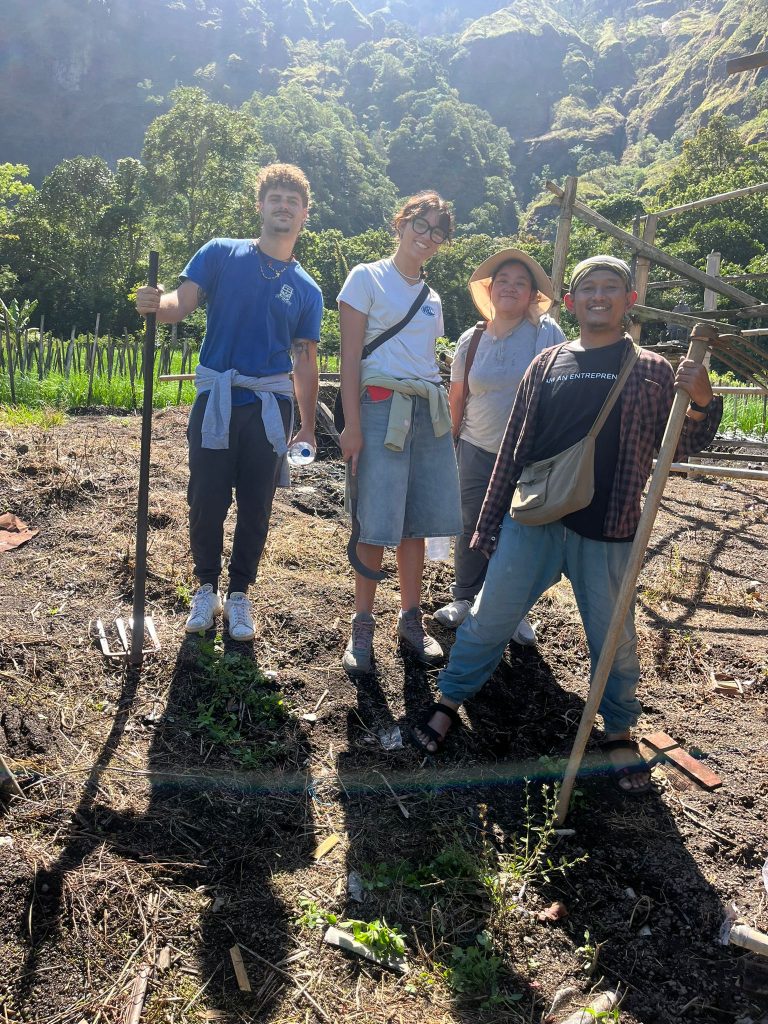
From 10 to 23 September 2025, our small but spirited team, comprising 2 volunteers from Indonesia (Itsnani Mardlotillah and Laksita E. Tyas) and 2 from Italy (Filippo Conti and Martina Verucci), lived together with our local partner farmers, Pak Eka and his family. Our workcamp site, located in the mountainous area of Kintamani, Bali, is surrounded by the serene beauty of Mount Batur, Mount Abang, and Lake Batur. Far from tourist crowds, it is a perfect place for those seeking peace and simplicity.
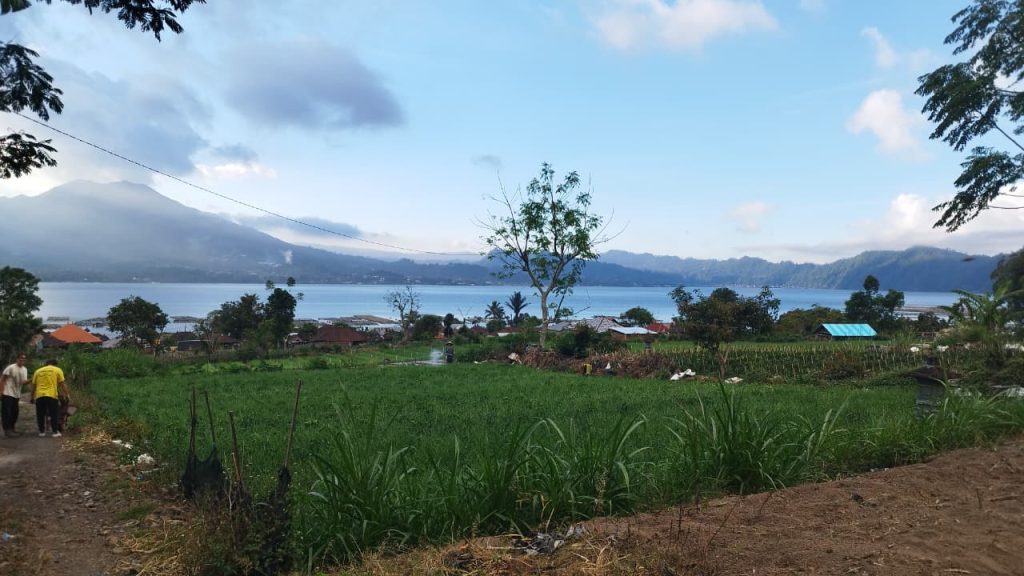
During the first week of our camp, we joined Pak and Bu Eka on their farm. At first, we observed how they took care of their shallot and chili pepper plants, watering them and then spraying some pesticides. From our discussion, we learned about the changes the farm has undergone since its inception over the years. We reflected on how these farming practices had affected the soil, and then we also discussed some simple ways to make farming more sustainable.
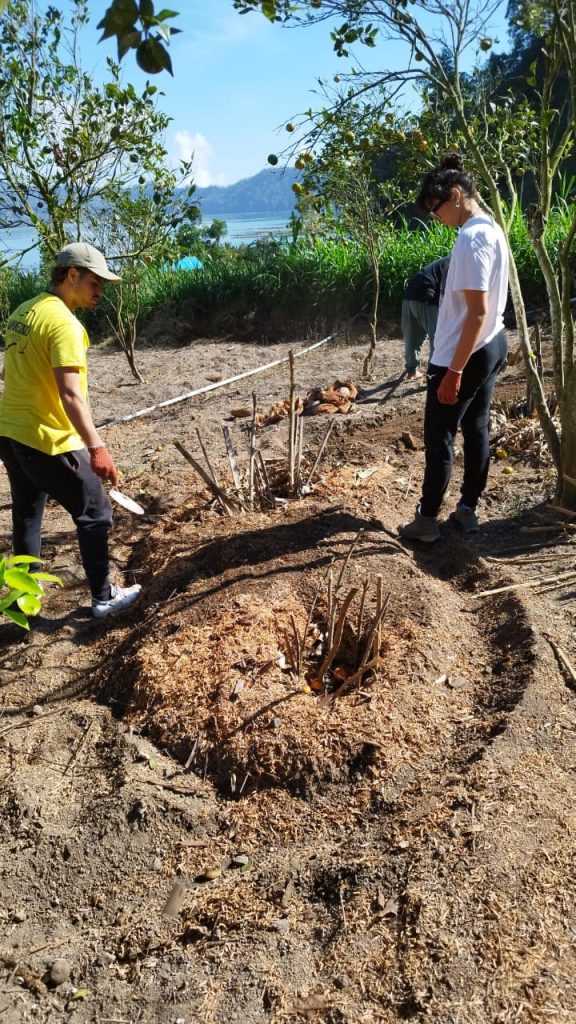
In one section of their orange farm, we demonstrated how to restore soil health. We cleared weeds, then introduced how to build a hugel bed (a raised garden bed made from layers of organic materials) as an alternative way of farming. We also dug some composting holes to process natural waste. These methods could help enrich the soil of the surrounding area, reviving soil life, and hopefully reduce dependence on chemical fertilizers, making efficient use of local resources.
Through these activities, we aimed to demonstrate that farming can be sustainable without relying on expensive chemical inputs. By working with nature, rather than against it, farmers can save costs while maintaining healthy soil for the future. We believe that this kind of collaboration between volunteers and local farmers can spark new ideas by combining traditional wisdom with ecological innovation. We also hope that more farmers will join our future programs.
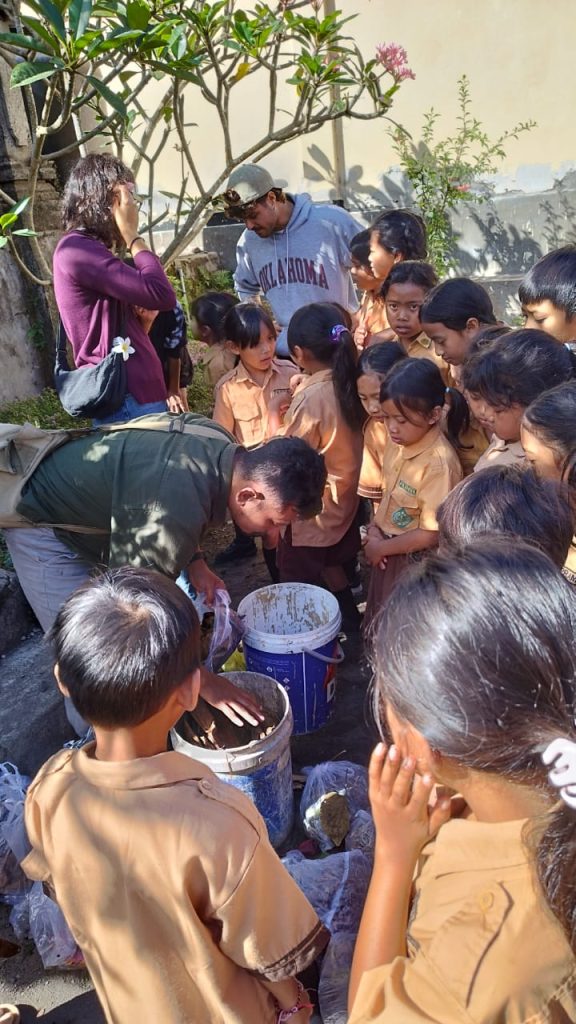
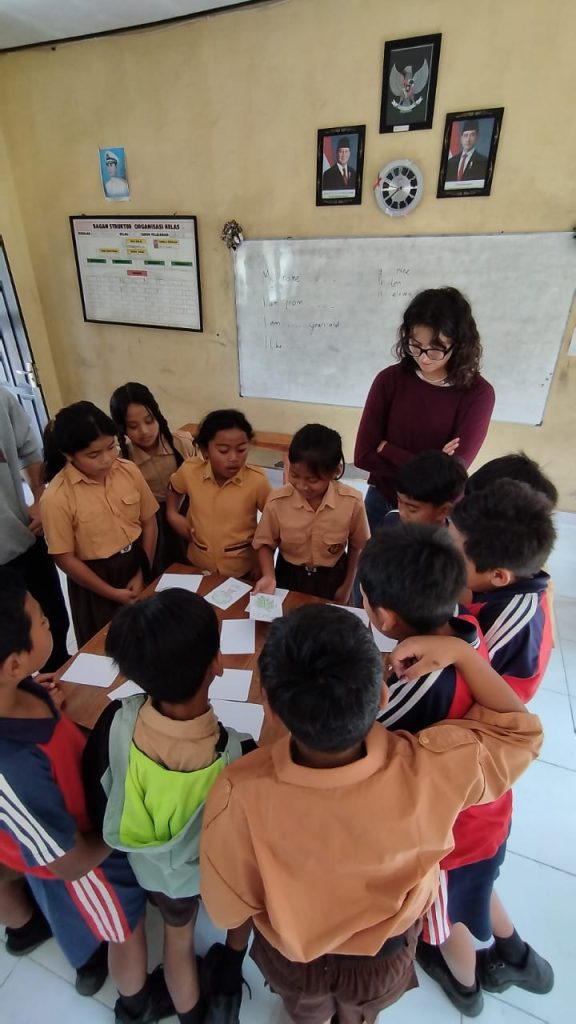
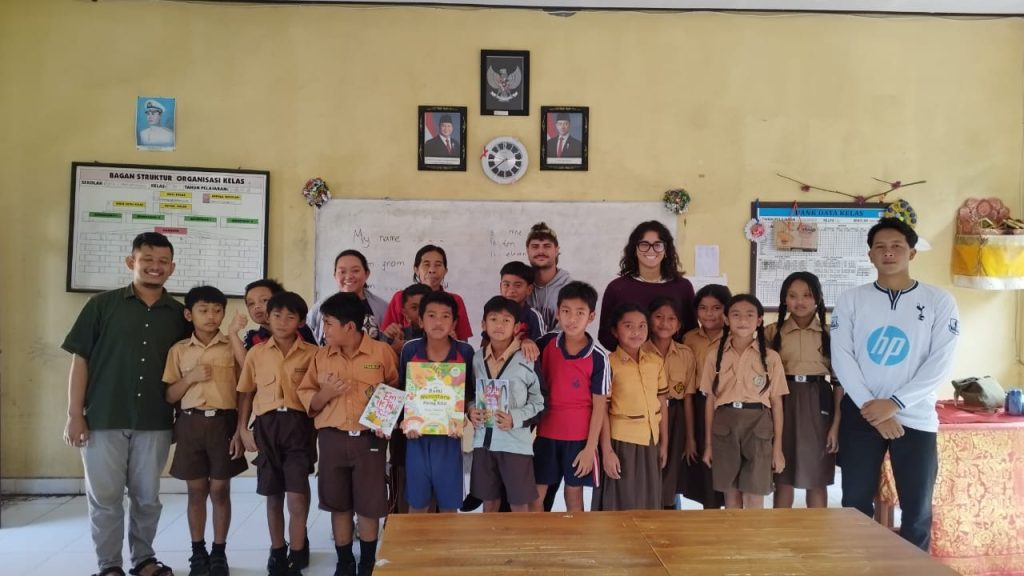
To share this spirit with the younger generation, we also visited two nearby elementary schools: SD Negeri 2 Abang Dinding and Olas Asih Elementary School. Together with the students, we practised composting in the school and introduced farming activities to the younger generation. We also played memory games and practised simple English to share some cultural experiences. Their energy, smiles, laughter, and curiosity left us in awe. Despite their limited resources, they demonstrated a positive spirit and determination to achieve their dream. To encourage them more to love local food and treasure Indonesia’s rich food resources and culinary heritage, we also donated several books: Ensiklopedia dari Bumi Nusantara ke Piring Kita, Em He Tah!, and Em He Taha Ten!
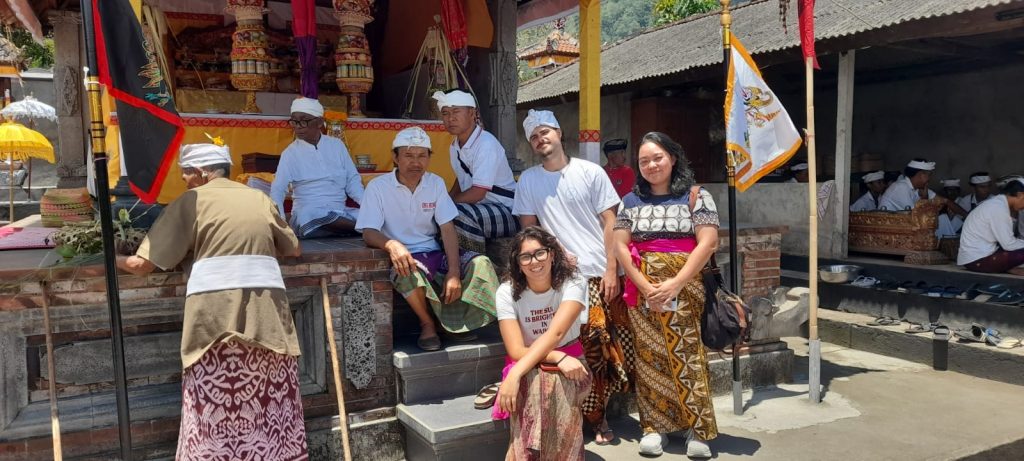
While learning about farming and environmental issues, we also learned some Balinese traditions. During the second week of our camp, we took part in the Tumpek Landep ceremony. Tumpek Landep is a Balinese Hindu ceremony that celebrates tools, technology, and mental sharpness. Villagers, many of whom are relatives of Pak Eka, and the volunteers, who wore traditional Balinese attire, went to the temple for prayers and rituals. They then decorated their farming tools, motorbikes, cars, or any other metal belongings with colorful offerings to express gratitude for human creativity and hard work. It was a beautiful experience to see how deeply Balinese people still value their traditions and incorporate them into their daily lives.
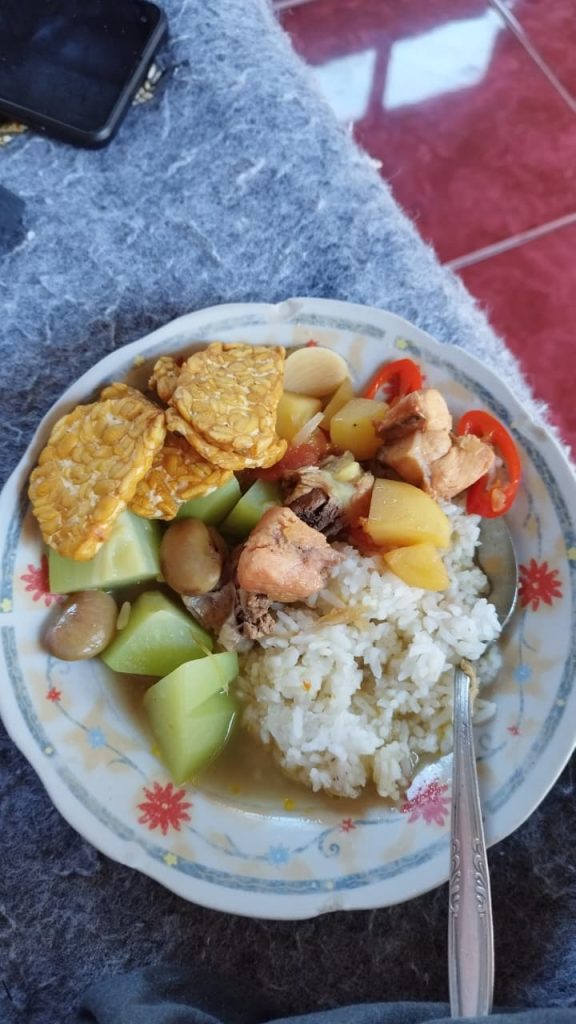
Last but not least, of course, food was another joy of the workcamp experience. During our stay, we enjoyed various Balinese dishes, including sambal matah, babi kecap, a vegetable soup with Balinese spices and various nuts, as well as urap and sate lilit. In return, our Italian friends cooked pasta using tomatoes that were freshly picked straight from our neighbour’s farm. Their pasta, made with fresh ingredients and especially their Parmesan cheese, turns me, someone who rarely eats pasta, into a fan!
This workcamp reminded us that meaningful travel isn’t just about seeing new places. It’s also about finding beauty in simplicity, learning from nature, and then growing together. If you are looking for a “holiday” with a purpose, consider joining our next workcamp and discover your own journey.

